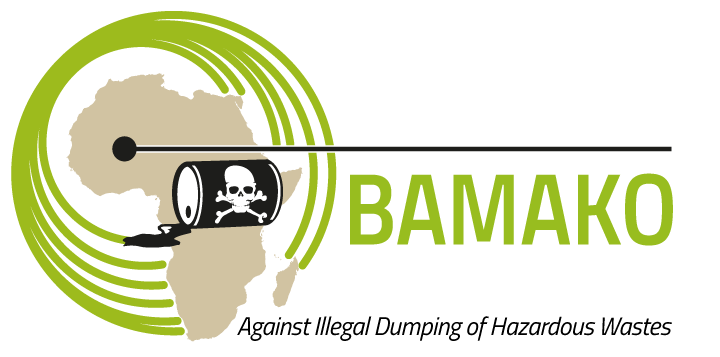The Role of Competent Authorities, Focal Point and Dumpwatch
The Bamako Convention establishes a system of information exchange within, and between Parties through the Secretariat, crucial to ensuring that Parties are equipped with the necessary information to allow them to make informed decisions on the transboundary movements and management of hazardous wastes.
Information exchange
The Convention requires Parties to set up information collection and dissemination mechanisms on hazardous wastes and to designate official points of contact to ensure that information is communicated to the appropriate persons/institutions. These official points of contact are referred to as “Competent Authority”, “Focal Point” and “Dumpwatch” depending on their functions. All contact points play key roles to the effective implementation of the Bamako Convention.
01/03
What is a Competent Authority?
Under the Bamako Convention, before commencing any wastes shipments, the country desiring to export hazardous or other wastes abroad should firstly secure the prior written consent of the country of import, as well as those of the countries through which the wastes will transit. In order to secure this consent, the State of export shall send, or shall require the generator or exporter to send a notification containing sufficient information to enable the importing and transit countries make informed decisions on whether to allow the proposed movements of wastes. The Competent Authority is the entity responsible for receiving and responding to notifications of transboundary movements of hazardous and other wastes. Upon receipt of a notification, the Competent Authorities of the countries of import and transit will have to decide whether to allow the proposed shipment of wastes into or through their territories respectively. Competent Authorities should be easily contactable and responsive. The Secretariat maintains a directory of contact details of Parties’ Competent Authorities on the Bamako Convention website. In some cases, this information is not placed on the website, but can be obtained from the Secretariat or a national Competent Authority identified by the Party. It is the responsibility of Parties to ensure that details on this webpage are up-to-date. Parties may designate more than one Competent Authority, in accordance with their specific needs and requirements. In such cases, Parties should provide details on the varying competencies of the different Competent Authorities to ensure that correspondence is channeled to the appropriate body.
02/03
What is a Focal Point?
The Focal Point is the conduit through which Parties transmit to and receive information from the Secretariat and other Parties. It is also responsible for receiving notices of meetings of Convention bodies. In case of an accident occurring during the transboundary movement of hazardous or other wastes which is likely to present risks to human health and the environment in other States, Parties are required to ensure that those States are informed immediately (Article 13).
The Focal Point is also responsible for submitting the annual national reports, by which Parties provide information on matters covered by the Convention for the previous calendar year. This report includes information such as details on the transboundary movements of hazardous and other wastes in which they have been involved, any measures adopted in implementing the Convention, and available qualified statistics on the effects on human health and the environment of the generation, transportation and disposal of hazardous or other wastes.
The transmission of information is the cornerstone of the Convention, and the Focal Point serves as the entity responsible in each country for ensuring the efficacy of this system. In order to be kept up-to-date with information from Parties and the Secretariat on matters related to the Convention, it is important that Focal Points are appropriately designated, and that any changes to their contact details are notified to the Secretariat as soon as possible.
03/03
What is a Dumpwatch?
Under the Bamako convention Parties have the obligation to Ban Dumping of Hazardous Wastes at Sea and Internal Waters. The Dumpwatch is a national body designated in connection with this obligation. In such capacity as a Dumpwatch, the designated national body only will be required to co-ordinate with the concerned governmental and non-governmental bodies.
